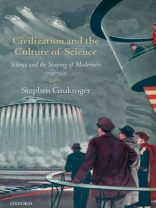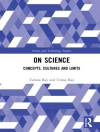How did science come to have such a central place in Western culture? How did cognitive values-and subsequently moral, political, and social ones-come to be modelled around scientific values? In Civilization and the Culture of Science, Stephen Gaukroger explores how these values were shaped and how they began, in turn, to shape those of society. The core nineteenth- and twentieth-century development is that in which science comes to take centrestage in determining ideas of civilization, displacing Christianity in this role. Christianity had provided a unifying thread in the study of the world, however, and science had to match this, which it did through the project of the unity of the sciences. The standing of science came to rest or fall on this question, which the book sets out to show in detail is essentially ideological, not something that arose from developments within the sciences, which remained pluralistic and modular. A crucial ingredient in this process was a fundamental rethinking of the relations between science and ethics, economics, philosophy, and engineering. In his engaging description of this transition to a scientific modernity, Gaukroger examines five of the issues which underpinned this shift in detail: changes in theunderstanding of civilization; the push to unify the sciences; the rise of the idea of the limits of scientific understanding; the concepts of ‘applied’ and ‘popular’ science; and the way in which the public was shaped in a scientific image.
Stephen Gaukroger
Civilization and the Culture of Science [PDF ebook]
Science and the Shaping of Modernity, 1795-1935
Civilization and the Culture of Science [PDF ebook]
Science and the Shaping of Modernity, 1795-1935
Mua cuốn sách điện tử này và nhận thêm 1 cuốn MIỄN PHÍ!
Ngôn ngữ Anh ● định dạng PDF ● Trang 480 ● ISBN 9780192588920 ● Nhà xuất bản OUP Oxford ● Được phát hành 2020 ● Có thể tải xuống 3 lần ● Tiền tệ EUR ● TÔI 8103740 ● Sao chép bảo vệ Adobe DRM
Yêu cầu trình đọc ebook có khả năng DRM












